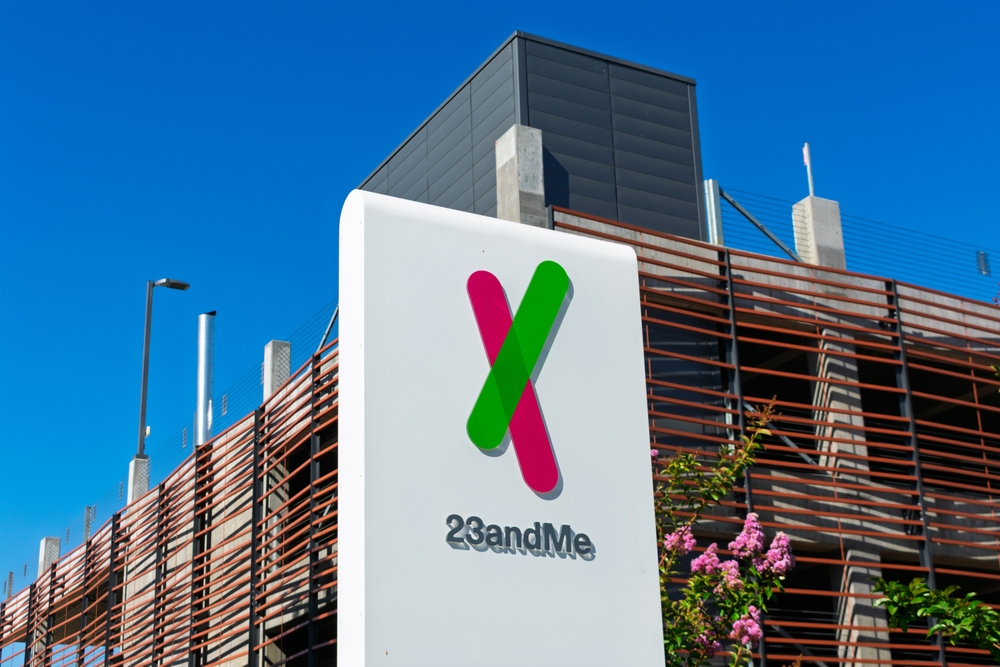As of the 2025 tax year, many older Americans may realize a new tax benefit…

Protecting Your Genetic Legacy: What 23andMe’s Bankruptcy Means for Your DNA Data
In the digital age, your estate is more than just financial accounts and property—it includes your online footprint and, in some cases, your genetic identity. That reality has come into sharp focus with the recent news that 23andMe has officially filed for Chapter 11 bankruptcy protection, raising serious questions about the future of its vast database of consumer DNA profiles.
As a leading estate planning and elder law firm in Melbourne, Florida, we often counsel clients about protecting sensitive information—whether financial, medical, or now, biological. If you’ve ever used a DNA testing service like 23andMe to learn about your ancestry or genetic health risks, read on. Your most personal data could be up for grabs.
23andMe Bankruptcy: What Happened?
On March 25, 2025, 23andMe filed for Chapter 11 bankruptcy, a type of reorganization that allows it to remain in business while restructuring its debts. As part of the process, the company’s assets—including its massive genetic database—could be sold to a new owner.
While 23andMe claims it will continue to store and manage data according to existing privacy practices, privacy experts and government officials are urging caution.
According to the National Human Genome Research Institute, genetic information is uniquely identifiable and can never be fully anonymized. If misused or acquired by malicious actors, DNA data could be used for identity theft, insurance fraud, or even discrimination.
A History of Privacy Concerns
This isn’t the first time 23andMe has faced scrutiny. In October 2023, hackers accessed the personal information of nearly 7 million customers, raising red flags about the company’s security protocols.
Now, with the company in financial distress, fears are mounting over how customer data will be handled in a sale.
In response, California Attorney General Rob Bonta issued a consumer alert urging individuals to consider deleting their genetic data and any physical DNA samples the company may still hold.
Why Protecting Genetic Data is Crucial in Estate Planning
Your genetic data is a blueprint of your biological makeup—and it’s one of the few forms of personal information you can’t change. Unlike passwords or account numbers, your DNA is permanently tied to you (and even your family members).
According to cybersecurity expert Adrianus Warmenhoven, who serves on the security advisory board at NordVPN, consumers should be proactive:
“Monitor your digital footprint regularly… shut down any account you don’t use… and be mindful of who you share your DNA with.”
How to Delete Your DNA Data from 23andMe
If you’re concerned about the privacy of your genetic information, 23andMe has confirmed that customers can still delete their accounts and associated data. Here’s how to do it:
Step-by-step instructions to delete your data from 23andMe:
- Sign in to your account at 23andMe.com.
- Click your profile icon in the top-right corner, then select Settings.
- Scroll to the bottom and find the section titled “23andMe Data.” Click “View.”
- (Optional) Download your data by checking the boxes and clicking “Request Download.” Note: This step can take up to 30 days and will be canceled if you proceed with deletion.
- Scroll to the bottom again and click the red button: “Permanently Delete Data.”
- Check your inbox for an email titled “23andMe Delete Account Request.” Open it and click the link to “Permanently Delete All Records.”
Once confirmed, 23andMe states that your account and all personal data will be permanently deleted, your genetic sample will be discarded, and your data will not be used in any future research.
What This Means for Your Estate Plan
For those thinking long-term, this issue highlights a growing concern in estate planning: digital and genetic legacies.
Here are some questions to consider:
- Have you included DNA testing accounts in your digital asset inventory?
- Does your power of attorney or executor have clear authority to manage or delete your online data?
- Have you specified your wishes for how your genetic information should be handled after your death?
These are no longer theoretical concerns. With companies like 23andMe in financial jeopardy, your genetic data could become a vulnerable—and valuable—part of your estate.
Take Action: Protect Your Legacy
Here are some practical steps to safeguard your digital and genetic information:
- Delete old or unused DNA testing accounts (like 23andMe).
- Include digital assets in your estate plan, and ensure someone you trust has legal access.
- Review privacy settings on all accounts that store personal or medical data.
- Talk to your estate planning attorney about creating a digital asset clause or using a secure digital vault.
- Educate your loved ones about how genetic data can be misused—and how to protect it.
FAQs About Protecting Your Genetic Legacy
1. What does the 23andMe bankruptcy mean for my genetic data?
When 23andMe filed for Chapter 11 bankruptcy on March 25, 2025, its assets, including its genetic database, became part of the reorganization process. This raises concerns about how this sensitive data could be handled or sold to new owners. Privacy experts recommend proactive steps, such as deleting your DNA data from the platform to safeguard your information.
2. Why is genetic data important in estate planning?
Genetic data is uniquely tied to you and your family. Unlike passwords or account numbers, your DNA cannot be changed, making it a valuable and sensitive digital asset. Including provisions for genetic data in your estate plan ensures that it is protected and handled according to your wishes after your passing.
3. How can I delete my DNA data from 23andMe?
You can delete your genetic data from 23andMe by following these steps:
- Log in to your 23andMe account and access your settings.
- Scroll to “23andMe Data” and choose the option to permanently delete your data.
- Confirm your request via email to ensure all records are permanently removed.
This process should also ensure the disposal of any physical DNA samples.
4. What risks are associated with sharing genetic information online?
Genetic information is highly sensitive and can be exploited for identity theft, insurance fraud, or even discrimination. A breach, like the one at 23andMe in October 2023 that affected 7 million users, underscores the importance of monitoring and safeguarding your genetic data.
5. How can I include digital and genetic assets in my estate plan?
Start by creating a digital asset inventory that lists DNA testing accounts and other online data. Work with an estate planning attorney to draft clear instructions for managing or deleting your genetic data, and give legal authority to a trusted individual to handle these assets after your death.
6. What are practical steps to protect my genetic legacy?
To secure your genetic and digital identity, you should:
- Delete unused DNA testing accounts.
- Regularly review privacy settings on platforms that store personal or medical data.
- Include digital and genetic assets in your estate planning documents.
- Educate family members about the risks and proper handling of genetic information.
7. Who can help me safeguard my genetic data and digital assets?
The Estate Planning & Elder Law Center of Brevard specializes in protecting digital and genetic legacies. They can guide you through updating your estate plan to include these modern concerns. Contact them today to schedule a consultation.
Final Thoughts
In an era where our most personal information is stored online, protecting your digital and genetic identity is an essential part of estate planning. The 23andMe bankruptcy is a wake-up call for anyone who’s ever shared DNA online—your data may be more valuable and vulnerable than you think.
At the Estate Planning & Elder Law Center of Brevard, we help clients plan for the future—not just financially, but digitally and biologically, too. Contact our estate planning experts in Melbourne, Florida, to secure your digital and genetic legacy.
Contact us today at elderlawcenterbrevard.com to schedule a consultation.



